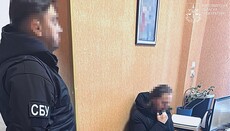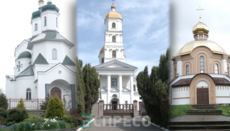UOC hierarch: Countries and regimes change while Church Slavonic remains

The Khmelnytskyi bishop noted that the Church Slavonic language has been in our Church from its very foundation, more than 1000 years ago.
On the day of commemoration of the Monk Nestor the Chronicler, Archbishop Viktor of Khmelnytskyi noted that the saint is called the father of our history. On the YouTube channel of the Khmelnytskyi Eparchy, the hierarch spoke about the importance of the Church Slavonic language.
"The Church Slavonic language has been expressing the God-revealed truth to us for a thousand years, and therefore is sacred to us," the archbishop said.
He stressed that during all this time the state borders, ideologies, and public sentiments have changed many times. And the Church Slavonic language continues to live in church worship.
"It carries a certain mystery joined with solemnity. It is as if the whole history of our people is intertwined in it. In it, there is also the memory of our Cossacks who defended the Church from Catholicization and Polonization, from the influence of the Union and Latin. This is the language of our heart," said the archbishop.
He pointed out that the Church Slavonic language is often confused with Old Slavonic, but these are different languages. Old Slavonic was the language of everyday communication in Rus, and Church Slavonic was used only in divine services.
According to the hierarch, this language is "neither Russian nor Ukrainian, it is the common language of all Slavs", which is used by Churches in Bulgaria, Macedonia, Montenegro, Serbia, Poland, Bosnia and Herzegovina, Czech Republic and Slovakia, Slovenia, Croatia and the USA.
Archbishop Viktor recalled that back in the 90s, the UOC authorised the use of the Ukrainian language in church services in divine services where 2/3 of the religious community would make such a decision.
At the same time, according to the bishop, the language of worship should not be a reason to divide the community into "friends" and "foes" or to manipulate public opinion about the status of the parish.






